5 ways to beat the afternoon slump
And we're not talking about caffeine.
Updated on September 24, 2020

The post-lunch, early afternoon coma: We’ve all been there. And believe it or not, there’s actually some science behind it.
Your energy and concentration levels naturally take a dip at about 2 or 3 p.m. because your body’s core temperature drops around that time; it's a regular part of your circadian rhythm, or natural sleep and wake cycle. You may also feel sluggish in the afternoon because you ate a lunch full of carbs, you’re dehydrated or you’ve been sitting at work or school all day.
But downing your third cup of coffee may not be the answer to perking up. In fact, beating a slump may be as simple as grabbing a snack or watching something funny. Here are some quick—and easy—ways to shake off that sluggishness.
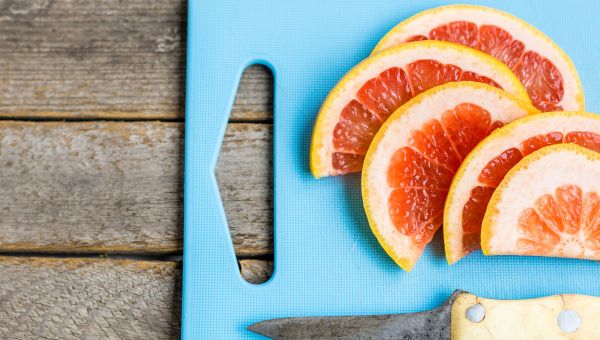
Stock up on citrus
While some scents, including lavender, can help you drift off to sleep, other smells may actually help you wake up. A mix of anecdotal evidence, traditional use and research suggests citrus aromas, like those of lemons, tangerines and grapefruits, may help boost your mood and make you feel more alert.
Try keeping candles, soaps and essential oils in these scents on hand. And when you’re feeling sluggish, eating a citrus fruit—or even blending one into a smoothie—may help you liven up, too.

Eat and drink right
It’s no secret that healthy eating can increase your liveliness. If you’re feeling zapped, a well-balanced snack will help you perk up.
When choosing a snack, make sure to include a mix of protein and complex carbs for sustained energy. Here are some easy options to give you a boost:
- A handful of nuts
- Carrots and string cheese
- Greek yogurt and fresh berries
You'll also want to avoid beverages that will zap your energy or cause a sugar crash later. Sodas, sugary coffee and energy drinks are all culprits, so opt for water, low-fat milk, nut milks or unsweetened teas. If you become dehydrated—which is easier than you think—you could experience fatigue, too, so be sure to replenish with these beverages throughout the day.
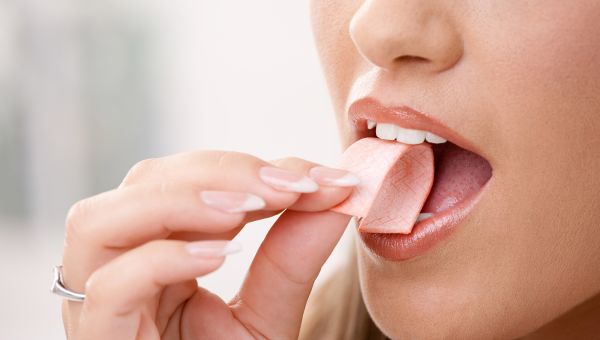
Grab some gum
While the studies are small, there is some evidence that chewing gum may help you liven up.
One 2012 study from Coventry University in the U.K. found that participants were considerably less sleepy and more awake after chewing mint gum. It’s possible the minty flavor causes your nose to feel cool and tingly, which may make you think you can breathe better. This may make you feel like you’re more alert.
While researchers are still unsure exactly why gum affects some people in this way, keeping a pack in your desk couldn't hurt.
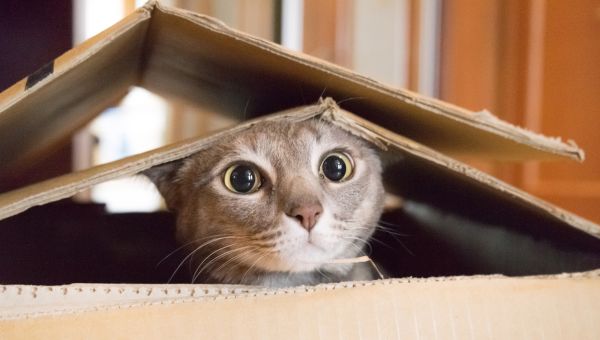
Watch your favorite cat video
You read that right: Fire up the internet, put in your headphones and take a break from this crazy thing called life for a few minutes. Animal videos—cat videos, specifically—are just the thing you need for a midday pick-me-up.
One 2015 Indiana University researcher surveyed almost 7,000 people and found that participants were more positive and energetic after watching cat videos online—and many of them viewed the videos at work or while they were studying. After watching cat-related clips, the subjects also had fewer feelings of negativity, anxiety, annoyance and sadness.
Websites like YouTube or BuzzFeed make it easy to search for cat videos. And we promise, you won’t be disappointed.
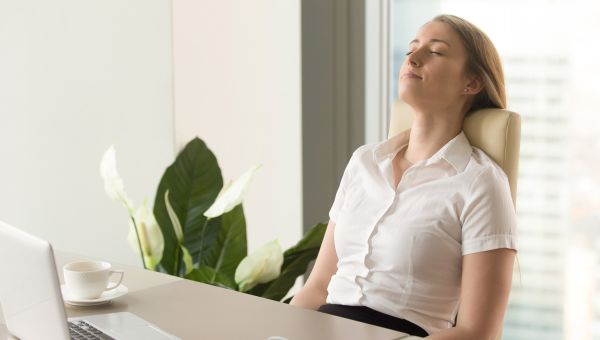
Take a few deep breaths
If you’re tired and having trouble focusing, taking some deep breaths can lower your stress levels and help you wake up.
For most people, exhaustion—both mental and physical—is closely related to stress. If you’re really frazzled, you might have trouble concentrating, and you could feel tired. Taking a few minutes to breathe is one way to combat this drowsiness.
Here’s how to do it:
- Close your eyes and focus on your breath.
- Take a normal breath. Then, deeply and slowly, breathe in through your nose and out through your mouth. As you fill up your lungs, your belly and chest should rise and your abdomen should expand.
- Keep up the deep breathing for two minutes, and longer if time allows.
Pro tip: Once you’ve mastered deep breathing, you can start to focus your mind on a relaxing-to-you image, such as waves crashing against the sand at the beach. You can also think of words—like love, peace, strength or balance—that will help you stay calm.

National Sleep Foundation. “Four Reasons You Get Tired at 2pm.” 2020. Accessed September 17, 2020.
National Sleep Foundation. “Scents to Help You Wake Up and Feel Energized.” 2020. Accessed September 17, 2020.
NS Dosoky & WN Setzer. “Biological Activities and Safety of Citrus spp. Essential Oils.” International Journal of Molecular Sciences. July 2018. 19(7), 1966.
Tara Gidus, MS, RDN, LDN, CSSD. “Eating to Boost Energy.” Academy of Nutrition and Dietetics. Reviewed June 2019.
Harvard Health Publishing. “Eating to boost energy.” 2020. Accessed September 17, 2020.
N Travica, K Ried, et al. “Vitamin C Status and Cognitive Function: A Systematic Review.” Nutrients. 2017, 9, 960.
Todd McLeish. “URI nutritionist finds chewing gum can reduce calorie intake, increase energy expenditure.” University of Rhode Island. October 27, 2009.
S Miquel, MB Haddou, JEL Day. “A systematic review and meta-analysis of the effects of mastication on sustained attention in healthy adults.” Physiology & Behavior. Volume 202, 1 April 2019, Pages 101-11.
AJ Johnson, C Miles, et al. “The effect of chewing gum on physiological and self-rated measures of alertness and daytime sleepiness.” Physiology & Behavior. 2012;105(3):815-820.
Indiana University. “Not-so-guilty pleasure: Viewing cat videos boosts energy and positive emotions, IU study finds.” June 16, 2015.
Harvard Health Publishing. “Relaxation techniques: Breath control helps quell errant stress response.” Updated July 6, 2020. Accessed September 17, 2020.
A Zaccaro, A Piarulli, et al. “How Breath-Control Can Change Your Life: A Systematic Review on Psycho-Physiological Correlates of Slow Breathing.” Frontiers in Human Neuroscience. 2018; 12: 353.
SA Manandhar, T Pramanik. “Immediate Effect of Slow Deep Breathing Exercise on Blood Pressure and Reaction Time.” Mymensingh Medical Journal: MMJ. September 30, 2019. 28(4):925-929.
More On


video
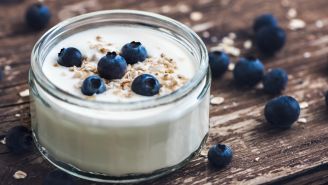
article


video


video


video
